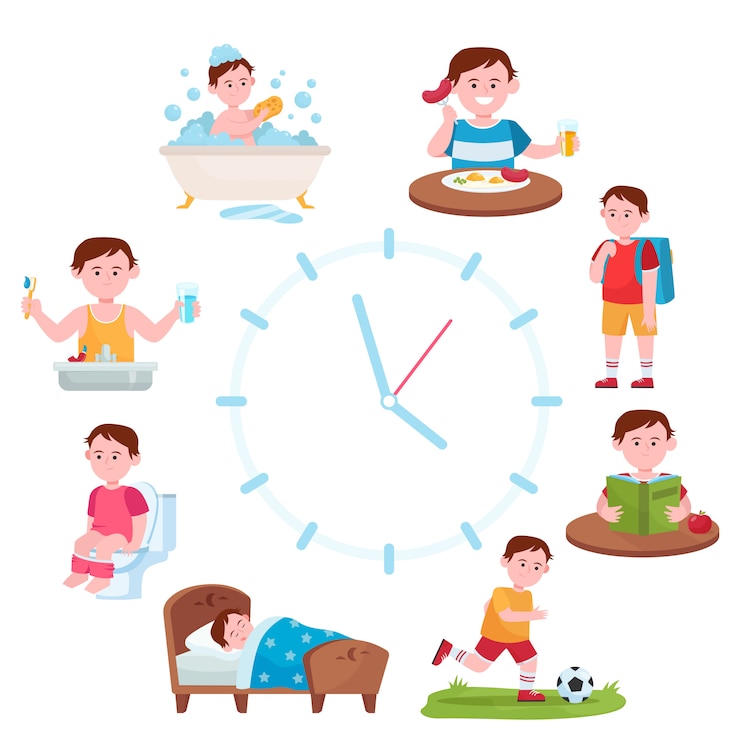
**Inside**: Explore how simple integrative health techniques can be part of your daily routine to enhance your child’s behavior, mood, and mental well-being.
**We Call It ‘The Beast’:**
Once a regular disruptor of our home, “the beast” would appear invisibly but was intensely felt. Now, it occasionally occupies my nine-year-old daughter, especially when she wakes up late on weekends or after a tiring day, showing up through grumpy tones and looks that seem sharp enough to cut. From her toddler years, we noticed her mood swings and it took us a long time to identify the subtle cause.
If you’re raising a strong-willed child, you’re in good company. >> Click here to access a free 9-page Masterguide with practical tips from a Child Therapist to help reduce conflicts and encourage cooperation.
The solution was so straightforward, we overlooked it at first. However, we eventually discovered one small change that greatly improved her morning mood (more on this later). There are many practical methods to boost a child’s behavior and mood daily; they are often so simple that we forget their importance.
You might have heard about ‘integrative medicine’ and wondered what it actually entails. Recently, I completed a course on integrative medicine and mental health by Dr. Leslie Korn, a specialist trained at Harvard Medical School. Integrative health considers the whole body by combining various medical fields and nutritional sciences to create the best approach for each person.
There are many integrative strategies that can support a child’s emotional and behavioral health. Learning these foundational principles revealed that simple, consistent actions could significantly improve how children behave and feel emotionally.
One such discovery was the influence of hydration. We make sure to drink 8 ounces of water together before and after school to maintain focus and energy. Dehydration can decrease cognitive function and cause fatigue, impacting mood and performance. Children, being more active and dependent on adults for their fluid intake, are particularly vulnerable to dehydration.
You’ve probably encountered the term ‘circadian rhythm’ but might not have realized its crucial role in your child’s mental and emotional health. This natural 24-hour cycle impacts cortisol levels, which influence mood, sleep, stress, and depression. Poor sleep affects neurotransmitters and hormones, impacting thinking and emotional regulation, often leading to behavior issues.
Research shows that being in nature helps children manage their emotions and positively impacts mood, cognition, and anxiety by calming the brain’s anxiety centers.
To improve child behavior, consider reducing screen time for more daily ‘green time.’ We learned that stabilizing our daughter’s blood sugar levels with more frequent meals and ensuring sufficient protein intake helped manage her emotions. Protein provides amino acids, the building blocks of neurotransmitters critical for brain function.
Daily mindfulness activities with children have been shown to build ‘brain muscles’ critical for self-control and focus. Understanding the breath’s power over the mind, yoga becomes a fun way for kids to regulate their emotions through breathing exercises.
Focusing on nutrient-rich, real foods can significantly aid your child’s focus, calmness, and emotional regulation. Dr. Leslie Korn’s ‘brainbow diet’ emphasizes foods that enhance brain function and behavior.
Essential oils can also play a role. Scents like lavender and lemon have powerful effects on mood due to their direct connection to brain areas related to emotion and memory. They’re especially effective during winter months to lift mood and help children relax.
Additionally, cardiovascular health supports mental well-being by balancing mood through aerobic exercise. Incorporating activities like soccer into your weekly routine can lead to noticeable mood improvements.
Be mindful of diet impacts too; the standard American diet, often high in processed foods, can disrupt mood and behavior. Though it’s tempting for convenience, making small changes toward less processed foods can pay off.
When “the beast” reemerges, we know our response: a quick trip to the kitchen for some nourishment. Over time, these small habit adjustments will not only improve behavior now but will also foster lifelong healthy habits that boost emotional health.
**Empower Your Child with LIFE Skills**
Join 30,000 other intentional parents receiving the weekly Parents with Confidence email, and get a free 5-day email parenting course covering:
* How to protect your child’s self-esteem
* Ways to gain your child’s cooperation
* The most valuable skill for your child’s future
* Disciplining without emotional harm
Stay connected and unsubscribe anytime.
**Additional Parenting Resources You May Like:**
– 10 Insights of Remarkable Parents (from a family therapist)
– 75 Calming Techniques for Kids that Work {Printable}
– Why Positive Parenting Isn’t Effective and 7 Reasons Why
– 5 Ways to Raise Good Listeners (Without Yelling or Negativity)



